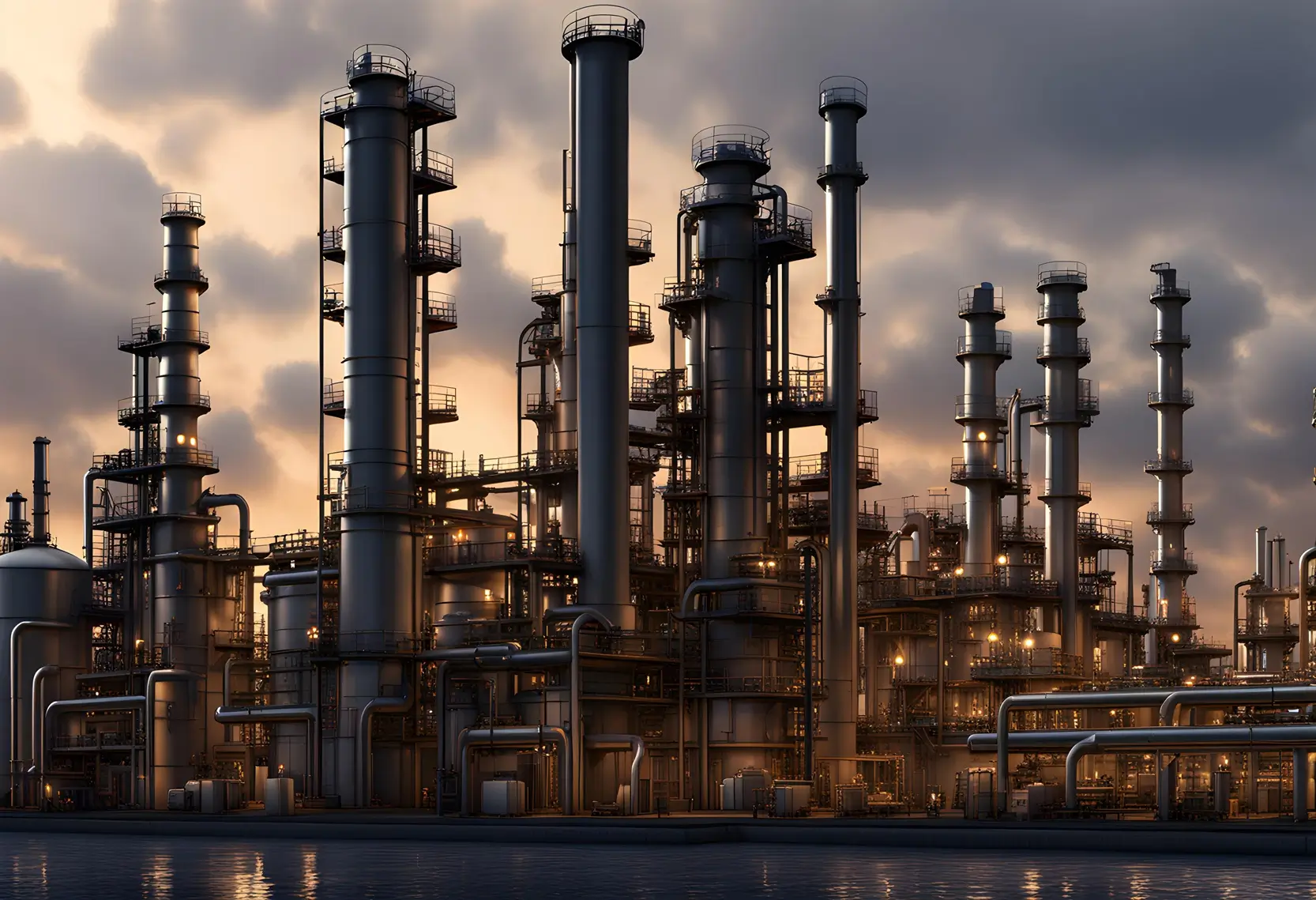
Since the early days of petroleum refining, additives have played a crucial role in the processing and production of petrochemical products. They are essential components that provide improved performance, stability, and protection for a wide range of products, including gasoline, diesel, lubricants, and plastics. The use of additives in the petrochemical industry dates back to the 19th century when sulfur was first added to crude oil to reduce its viscosity and facilitate processing. In the early 20th century, other additives like benzene and toluene were introduced to gasoline to enhance its octane rating improve fuel efficiency, and prevent engine knocking. Therefore, the petrochemical industry has been using additives since the 19th century, with sulfur being among the earliest additives used.
Sulfur as Petrochemical Industry Additive
However, interestingly sulfur is already naturally present in crude oil as an impurity, and its concentration varies widely depending on the source of the extracted crude oil, from sweet oil to sour oil. In some cases, the sulfur content of crude oil varies from less than 0.05 to more than 5 wt.% (percentage by weight) which could cause difficulties in processing, such as catalytic cracking, possible increase in corrosion, and fouling of equipment, as well as the emission of harmful sulfur dioxide which could lead to acid rain. Therefore, sulfur is often removed from crude oil during refining, a process known as desulfurization. To determine sulfur content Energy Dispersive X-Ray Fluorescence
Spectroscopy (EDXRF) is used as a testing method. However, after extraction of the sulfur, in some cases, sulfur may be deliberately added to refined products as an additive for specific purposes. For example, sulfur compounds can function as antioxidants, which help to prevent the degradation of petroleum products by inhibiting the oxidation process. Sulfur can also be used as a lubricant additive to improve the wear resistance of engine parts. Present day, there are countless types of additives used in the petrochemical industry, each with its specific chemical composition and purpose. For example, dispersants are used to prevent the buildup of deposits and sludge in fuel systems, while antioxidants are added to lubricants and plastics to prevent degradation and extend the product lifespan.
Composition
Petrochemical products that are enhanced with additives can improve product performance, quality, and uniformity by boosting fuel efficiency, enhancing engine protection, lowering emissions, ensuring product stability, preventing the formation of deposits and/ or reducing oxidation, and increasing equipment lifespan which inevitably reduces maintenance costs.
The chemical composition of additives varies widely depending on their intended use. Fuel additives often contain nitrogen-containing compounds, while lubricant additives contain metals such as zinc dialkyl dithiophosphate or other zinc compounds, molybdenum disulfide, and other compounds. A lot of research effort is put into the chemical composition of additives and they are carefully formulated to provide the desired properties and benefits. Petrochemical products enhanced with additives can improve product performance, quality, and uniformity by boosting fuel efficiency, enhancing engine protection, lowering emissions, ensuring product stability, preventing the formation of deposits or reducing oxidation, and increasing equipment lifespan inevitably reducing maintenance costs. In short, additives enhance the quality and uniformity of petrochemical products which improves consumer safety and satisfaction while contributing to sustainability.
Sustainability in Petrochemical Industry Additives
Fuel additives have become an essential tool for the petrochemical industry in addressing environmental concerns, pollution, and sustainability. Many fuel additives are designed and advertised to reduce emissions of carbon dioxide (CO2) and other harmful gases, helping to mitigate the negative impact of global logistics on the environment. However, despite the advances in fuel additive technology, electric vehicles remain a significant threat to the petrochemical industry. The desired shift towards electric vehicles and reducing dependency on fossil fuels has become a key factor in the geopolitical landscape. Countries are increasingly seeking to reduce their reliance on oil and gas imports, which can be politically and economically destabilizing. This has fast-tracked the development of national strategies to promote the adoption of electric vehicles and alternative fuel sources, as well as efforts to develop domestic sources of energy. As a result, the geopolitical implications of transitioning away from traditional fossil fuels are significant and have the potential to entirely reshape the global energy markets and relationships between countries.
This shift has created a significant challenge for the petrochemical industry, as it threatens to reduce demand for traditional gasoline and diesel fuels. Additionally, alternative fuel sources such as biofuels and hydrogen are also being developed, further intensifying the competition. The petrochemical industries are therefore facing increasing pressure to innovate and develop new products that meet the evolving needs of the market and the ongoing power struggle between oil and gas-producing countries does not help. Therefore, forming new alliances is becoming increasingly important for the petrochemical industry to remain competitive and sustainable. As countries seek to secure their access to energy sources and protect their interests, the industry must navigate complex geopolitical landscapes to achieve their goals.
Finally investing in research and development of cleaner and more efficient fuels is another way for the industry to stay ahead of the competition and meet the demands of the volatile energy markets.
Conclusion
Additives have played a crucial role in the petrochemical industry since its inception, delivering numerous benefits to products such as gasoline, diesel, lubricants, and plastics. The composition of additives varies widely depending on their intended application, and extensive research and effort are dedicated to formulating them to provide desired properties and advantages. Fuel additives have become a vital tool in addressing environmental concerns and promoting sustainability. However, the industry faces a significant challenge with the shift towards electric vehicles and alternative fuel sources. To remain competitive and meet evolving market needs, the industry must invest in research and development and establish new alliances. Ongoing power struggles and geopolitics among oil and gas-producing nations only add to the complexity of the situation. As countries strive to secure their energy access and safeguard their interests, the industry must navigate these challenges and collaborate with allies to achieve their objectives. The petrochemical industry must continue to innovate to sustainably contribute to the global energy markets of the future.




